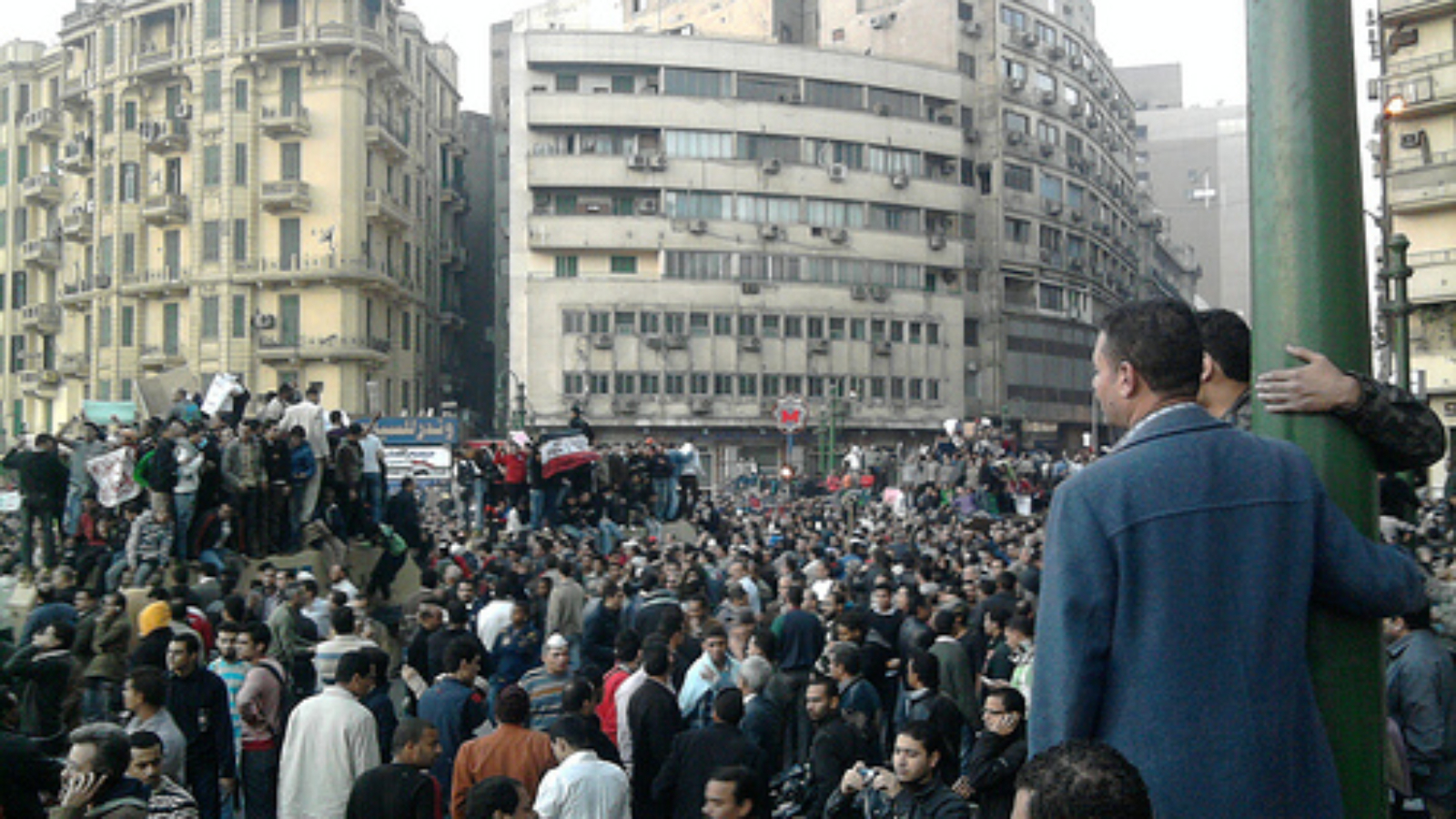UPDATE: Sunday, Feb. 6, 3:24PM: After military authorities conviscated his passport earlier today, our correspondent in Tahrir Square asked the World Policy blog to remove his byline from previous posts and to publish his dispatches anonymously.
**Monday, Feb. 7: Baker has recouped his passport.
This is the second in a series of dispatches from Simon Baker, our correspondent in Cairo, as told to David Black of World Policy Journal over the course of several phone conversations. (Parts one & three.)
*****
Inside Tahrir it is like a fortress; no pro-Mubarak supporters are getting in. Side streets that were being used as entrances have been barricaded. Now there are just a few key entrances: the entrance leading to the square from Dokki; one to the northeast; and one near the side streets leading to the Egyptian Museum.
Small camps, covered by tarps, have been set up at the entrances to the Metro. This is where food is being distributed. If you’re full, you don’t eat — you help feed others.
Mostafa Rubia and Mohamed Ali were working at one camp. They have been here for the past nine days. I asked them what would have to happen for them to feel comfortable leaving the square.
“Mubarak has to go, the current parliament has to be dismantled, and there has to be reform,” Mohamed said.
Nearby, I met Asif, a middle-aged man who lives with his family in a middle-class Christian area. In 2006, he was working as a tour guide in Dahab, a resort town in the Sinai, when a terrorist attack killed two dozen people — mostly Egyptians. "That's when I started to realize that all of the security and police forces are only there to protect Mubarak’s rule," he said. "They should have been able to have easily stopped the bombings."
Asif was grateful for international support for the protestors. "When I saw the words 'the dictator Mubarak' on CNN, I felt that the international community was with me." But he was worried that soon, businesses would begin paying pro-Mubarak demonstrators — many of whom have not received their last paycheck — to swarm the square. Others expressed a similar concern: that the banks will open today and it will give individual politicians access to their accounts and therefore the ability to bribe pro-Mubarak supporters.
On the other hand, people outside the square are understandably looking forward to getting their paychecks. If the banks open and people aren’t able to get their money, there will be a serious outcry. Ordinary Cairenes who have not participated in the protests have endured a lot of insecurity in the past week. A friend of mine who lives in Mosan, the one hilly area in the city, told me that an entire block near his apartment had been looted and burned — the block that housed his neighborhood's police station. Now his neighbors have put the area under complete lockdown, with a round-the-clock watch.
I've been struck by the way people in Cairo are able to adapt and persevere, whether they are protestors under attack in Tahrir Square or just people trying to figure out how to protect themselves and their loved ones when, suddenly, all sense of security evaporates.
Our correspondent is an undergraduate studying political science at the American University in Cairo. David Black is an editorial assistant at
World Policy Journal.
[Image courtesy of Flickr user Mashahed.]
